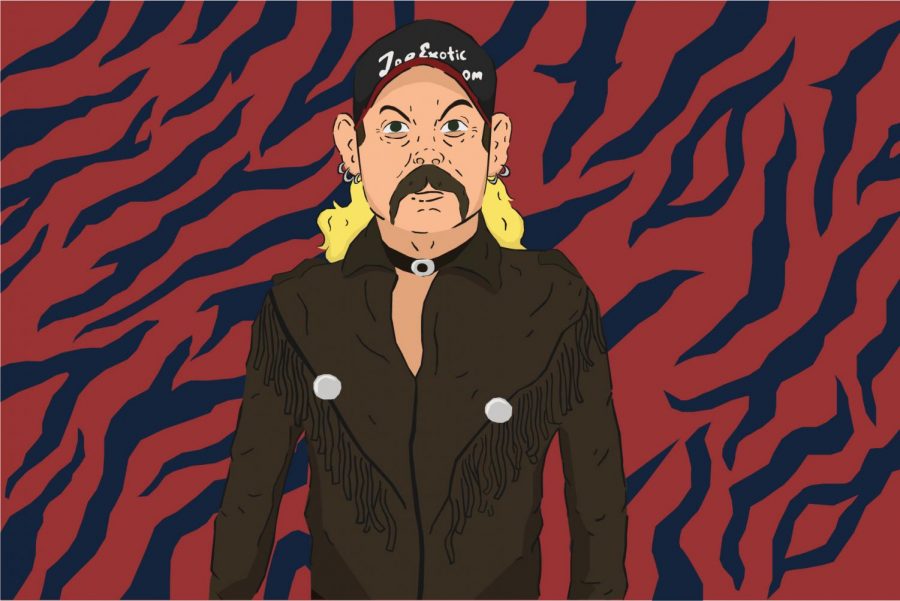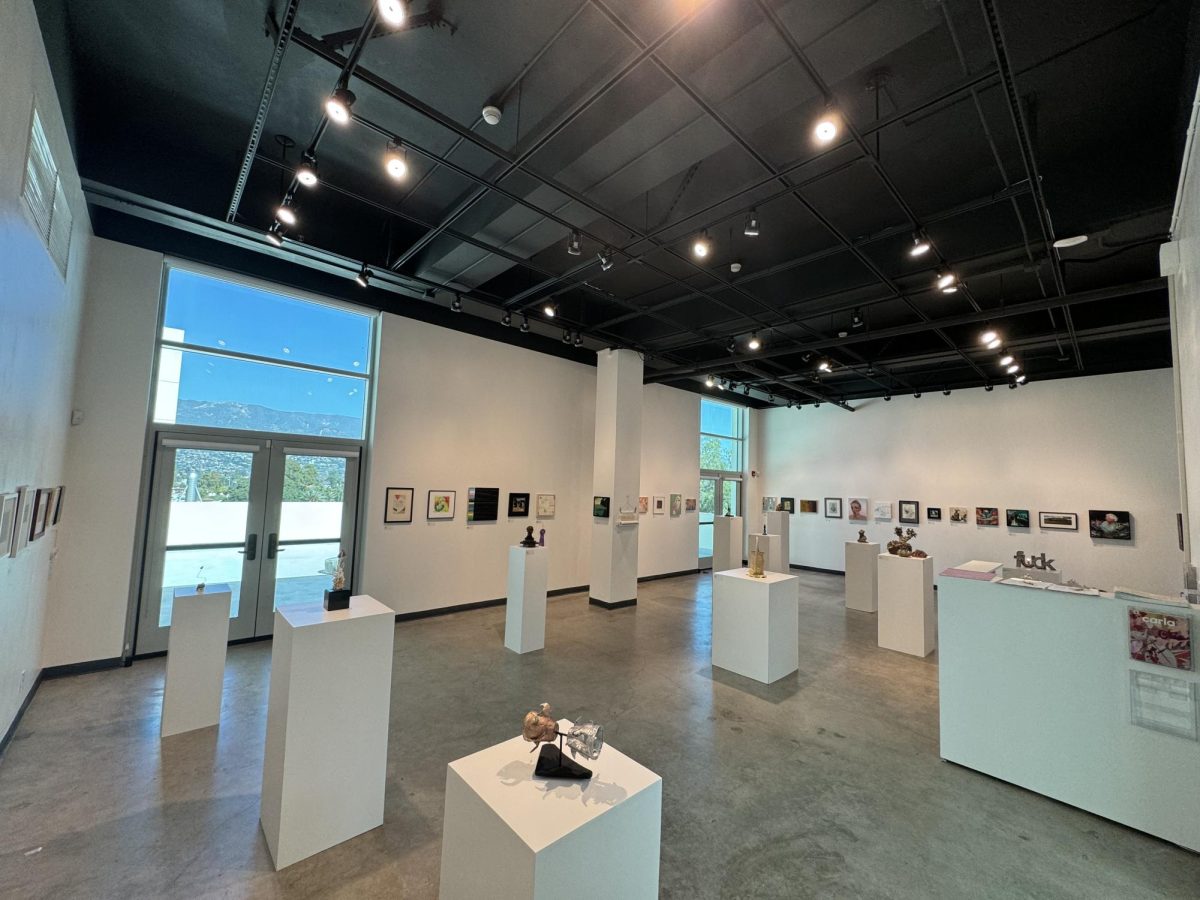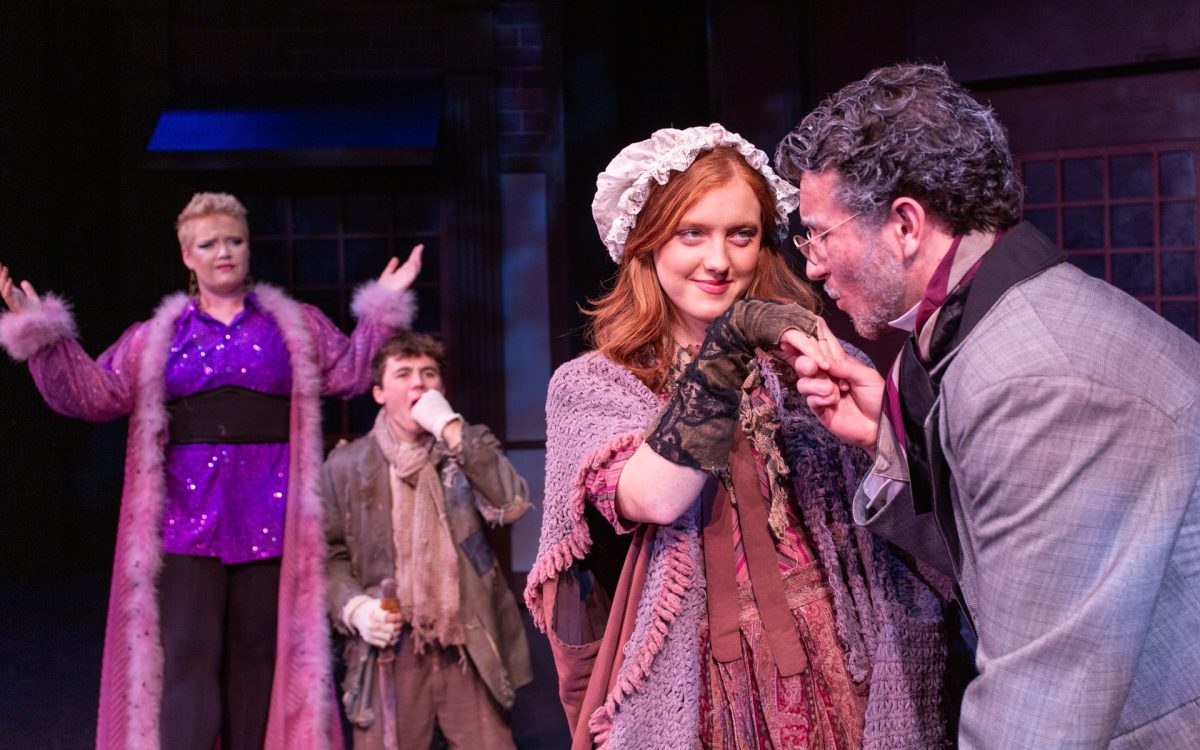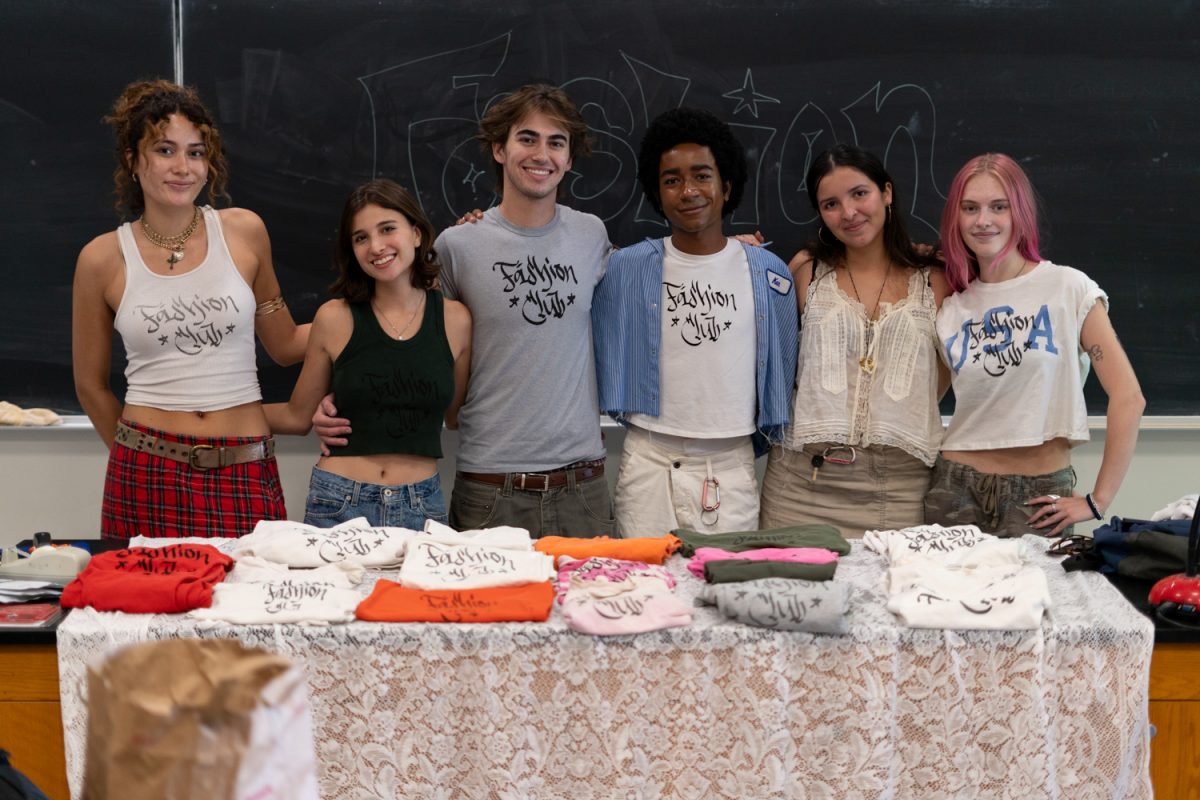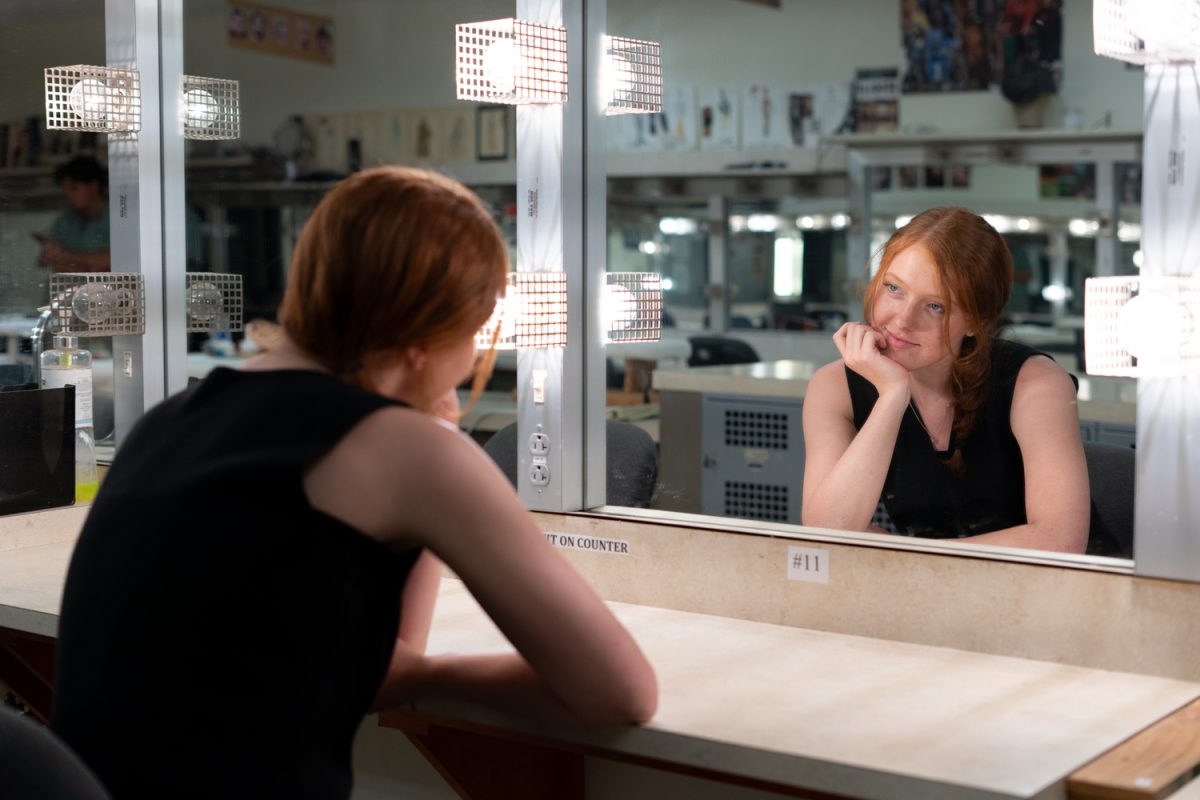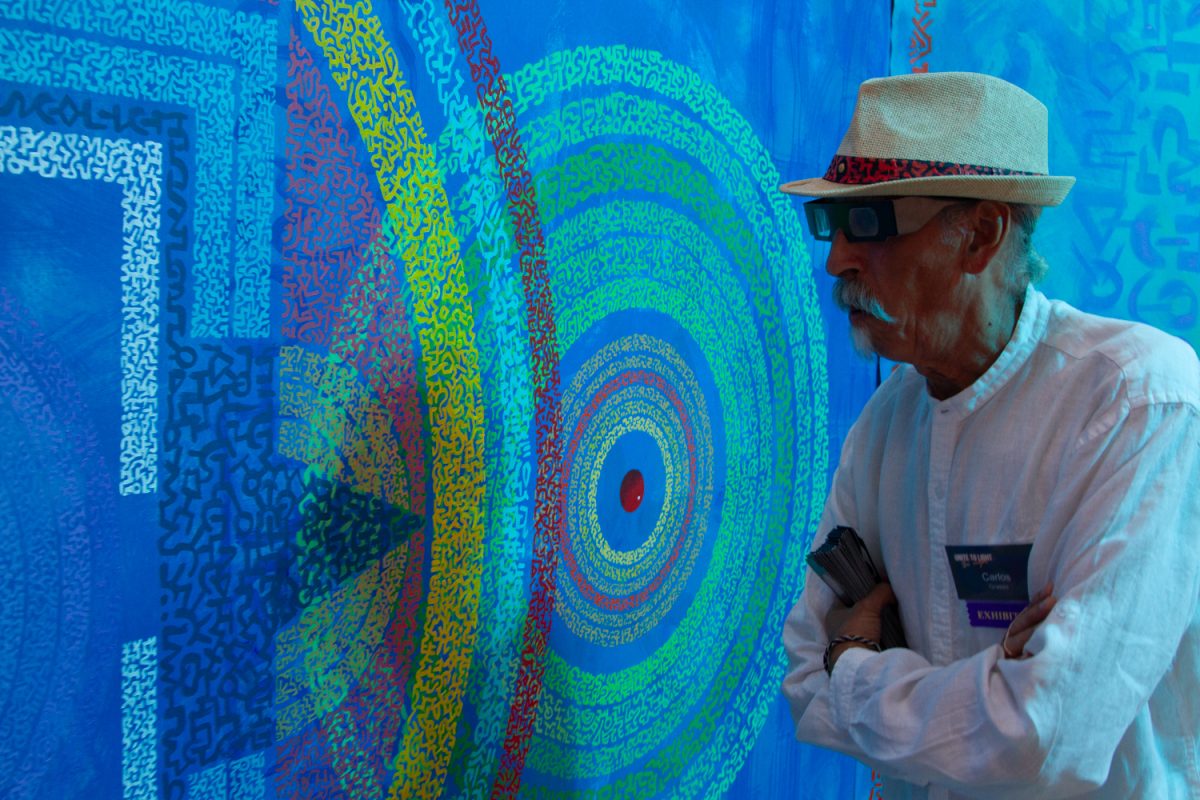Joe Exotic is a household name.
The self-proclaimed “Tiger King” has captured the quarantine spotlight and captivated millions of Netflix users across the world.
So what is it about Exotic’s story that makes it such a unique and interesting case? It goes much deeper than the 600-pound feline appeal.
“Tiger King: Murder, Mayhem and Madness” hit the small screen March 20, just a day after California Gov. Gavin Newsom announced a statewide shelter-in-place, the first state in the nation to do so.
The docuseries follows a feud between exotic animal owner Joseph Maldanado-Passage (Exotic) and Carole Baskin, the owner of a big cat sanctuary in Florida.
Throughout the series, Exotic’s slow descent into madness is what eventually landed him behind bars, serving 22-years for a murder-for-hire plot targeting Baskin and endangered animal abuse.
But Exotic didn’t always have that larger-than-life on-screen persona we’ve all come to know.
He wasn’t always Joe Exotic.
He didn’t always exploit big cats and other wild animals for personal wealth.
And that’s what makes his being so complex.
Exotic got his start with animals in the 1980s. After working at a pet store in Arlington, Texas called Pet Safari for some time, he and his brother Garold bought it in 1986.
The two worked well together, and their shared passion for animals made the shop flourish. But this partnership came to an end in 1997 when his brother was killed in a drunk driving accident.
After some thought and time, Exotic thought it best to sell and close that chapter in his life.
As stated in the documentary, he then opened the Garold Wayne Exotic Animal Memorial Park in Wynnewood, Oklahoma in his honor, now known as the Greater Wynnewood Exotic Animal Park.
Exotic’s original intentions were pure.
The park was opened as a sanctuary for exotic animals. Original residents included deer, buffalo and bears.
His first step into darkness occurred when he was phoned to house a herd of emus. During transport, several escaped and were gunned down by him after proving too difficult to capture.
He evaded animal cruelty charges in the end, as the emus were considered to be livestock.
But the incident did raise concern.
Why would an owner of an animal sanctuary gun down sick birds in transit to a “better” life?
These birds wouldn’t be the only animals Exotic would put down.
As his empire grew, so did the cost.
More and more endangered species were added to his menagerie, and the cost of feeding alone began to overwhelm him.
Looking for creative means, he began to take his animals to malls and flea markets as paid photo-ops. This path eventually led him to his well-known road act, combining animal acts with spectacles of magic flare.
It seemed that along the way, he lost sight of his original mission, to own a safe haven for animals that couldn’t necessarily return to the wild.
In the documentary, Exotic said that he started breeding tiger cubs as a way to make some extra cash, a deed that he once stood in vehement opposition against.
Some may argue that breeding these animals in captivity is a way to ensure species survival, but when you look at what is done with the cubs afterward, the argument loses some air.
Exotic’s sanctuary touted cub petting, an ethical dilemma for many reasons.
According to National Geographic, in order to keep cub petting an attraction year-round, cubs must constantly be bred.
That means taking the newborns from their mothers almost instantaneously to ensure the mother can experience a quick turn around and get back into breeding mode.
This, in turn, can lead to an excess of tigers. In the documentary, Exotic is accused of shooting five of his own.
At that point, he was fully wrapped up in his new persona. A gun-toting gay redneck with a mullet who owned a zoo.
His obsession with fame is apparent throughout the series, and is what led to his eventual downfall.
His initial passion for animals was set aside, and in turn replaced by money-making schemes at the animals’ expense and creating an image of himself, an image fit for a king.
In the closing scene of “Tiger King,” it seems Exotic comes to this epiphany, too.
Who knows if he was shedding verbal crocodile tears simply because he was in front of cameras holding him accountable, but for a moment, he seemed to lament his actions.
“I’m ashamed of myself,” he said.
The emotionally charged scene shows Exotic recounting one of his last visits with his two chimpanzees that had been transported to a sanctuary in Florida after the G.W. Zoo’s closure. The pair, originally kept in separate adjacent cages, embraced one another in a hug. “Did I deprive them of that for ten years? Yes,” he said. “Did I do it on purpose? No. I was wrapped up in having a zoo.”


